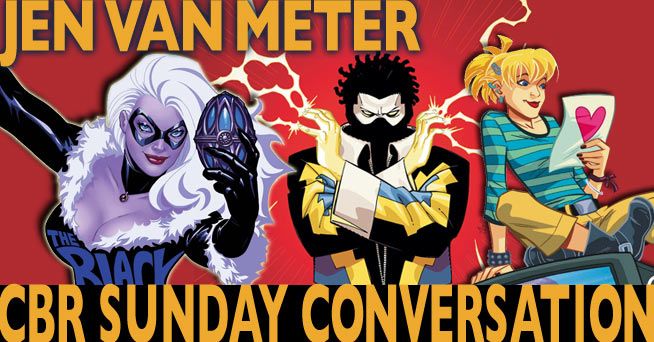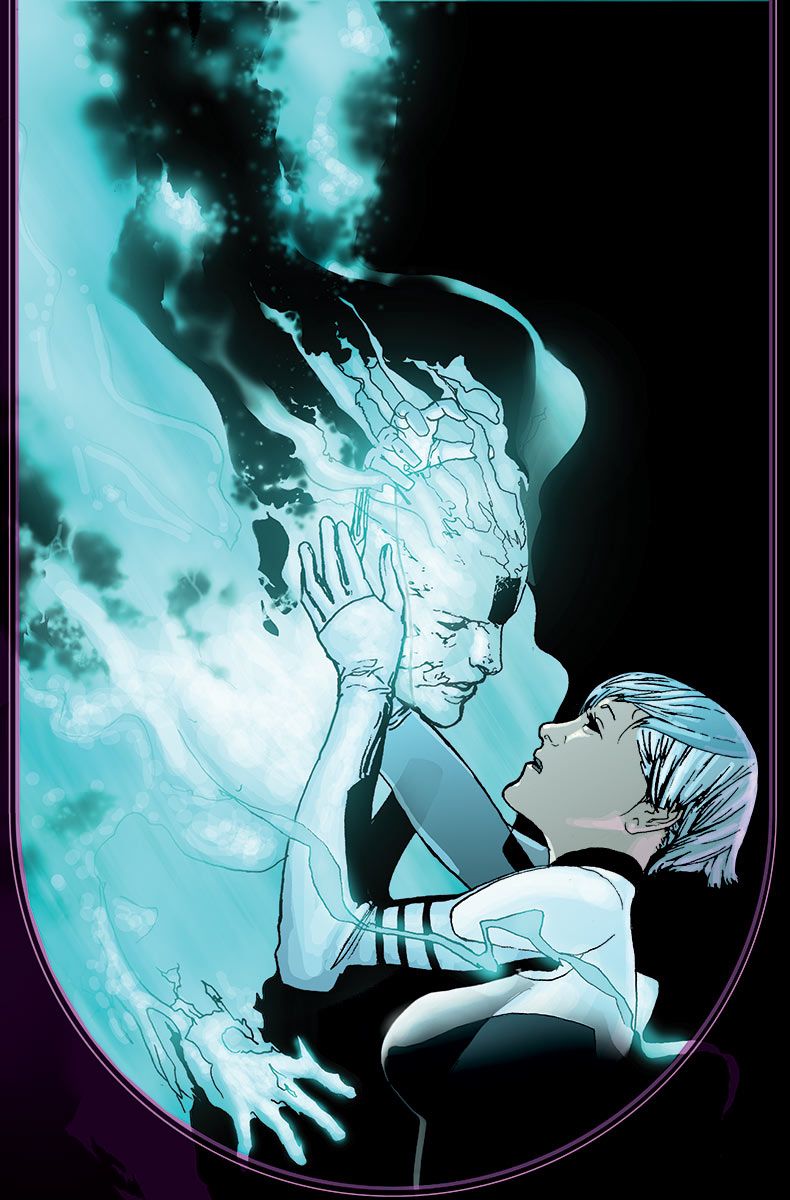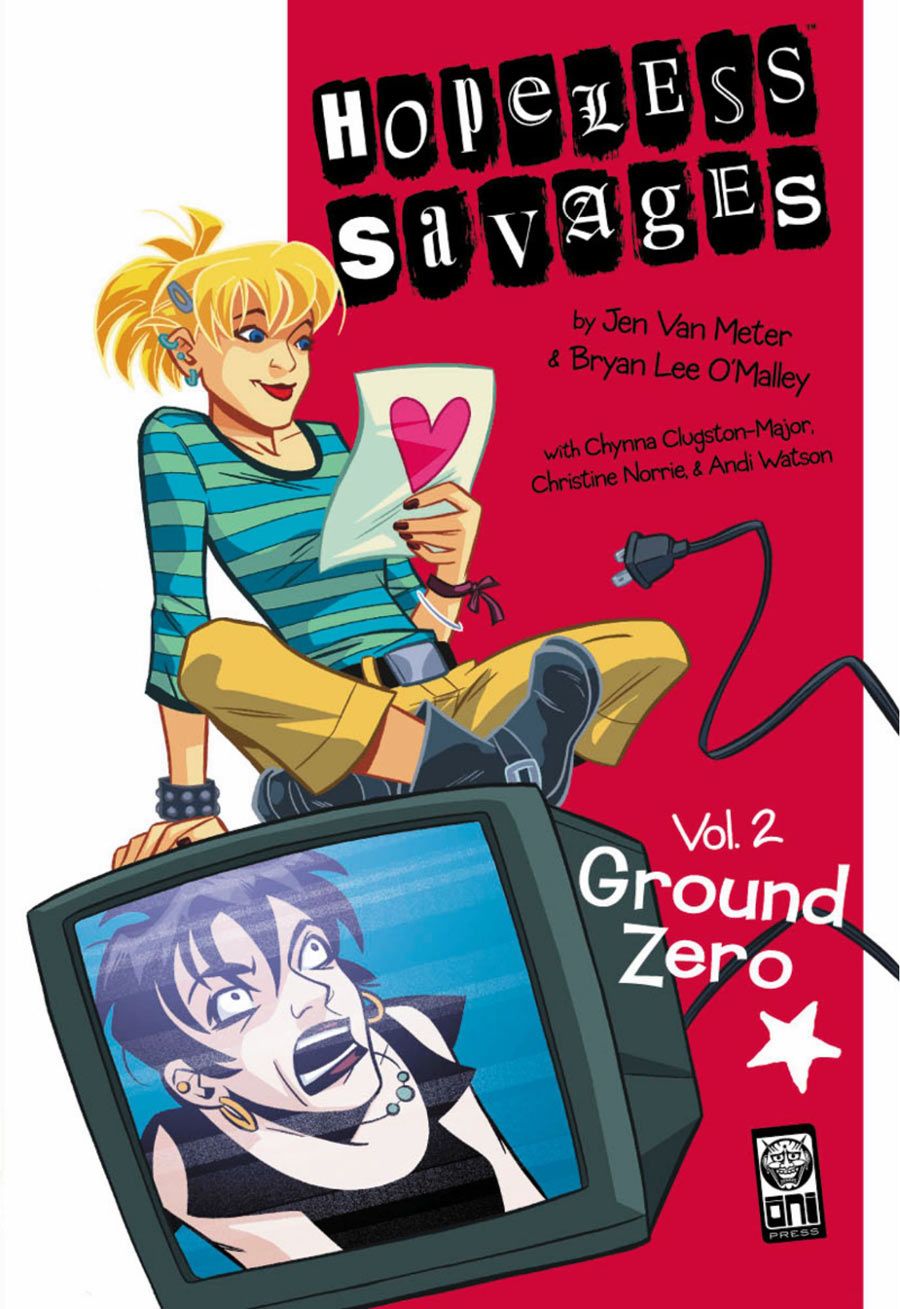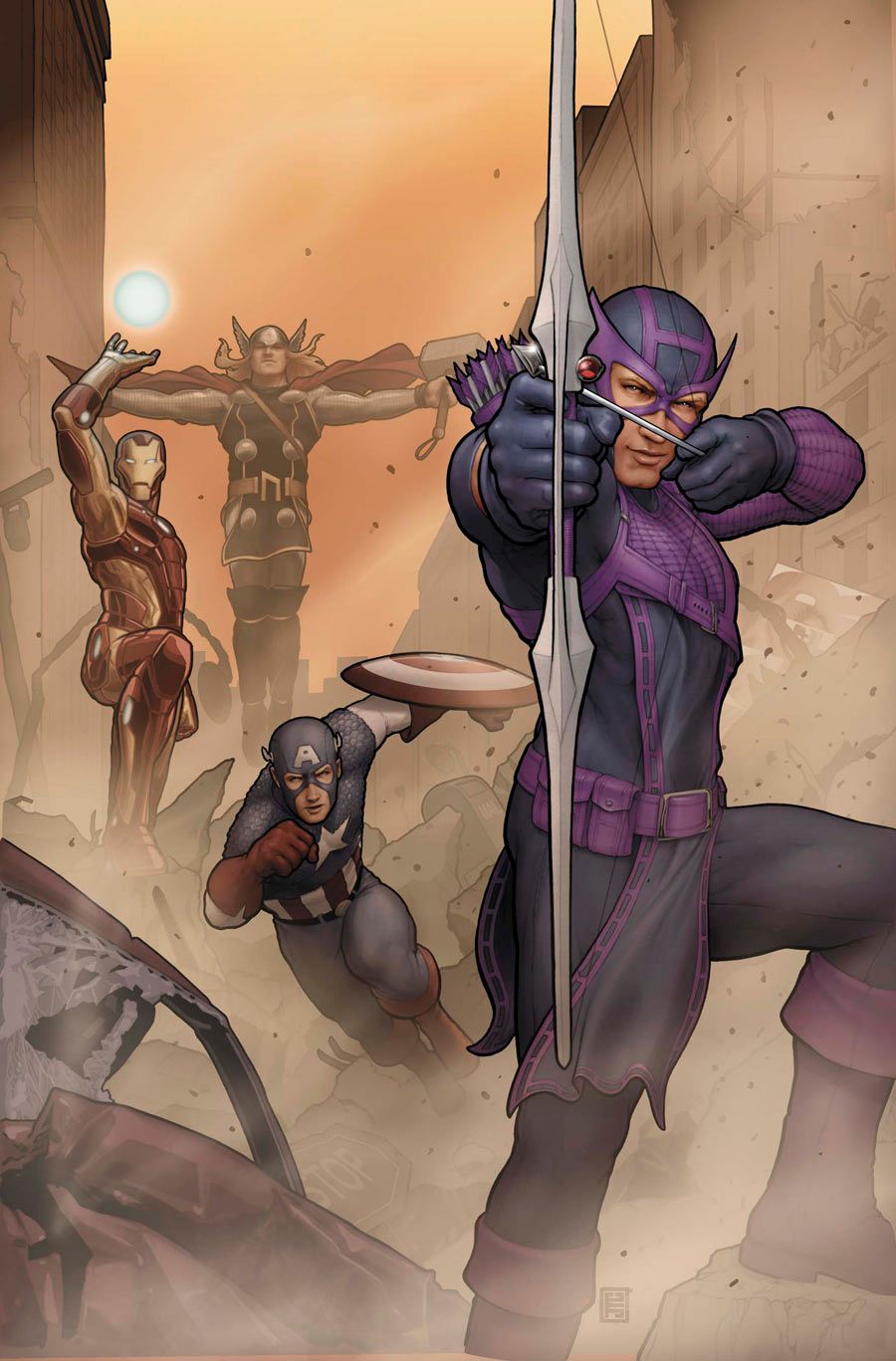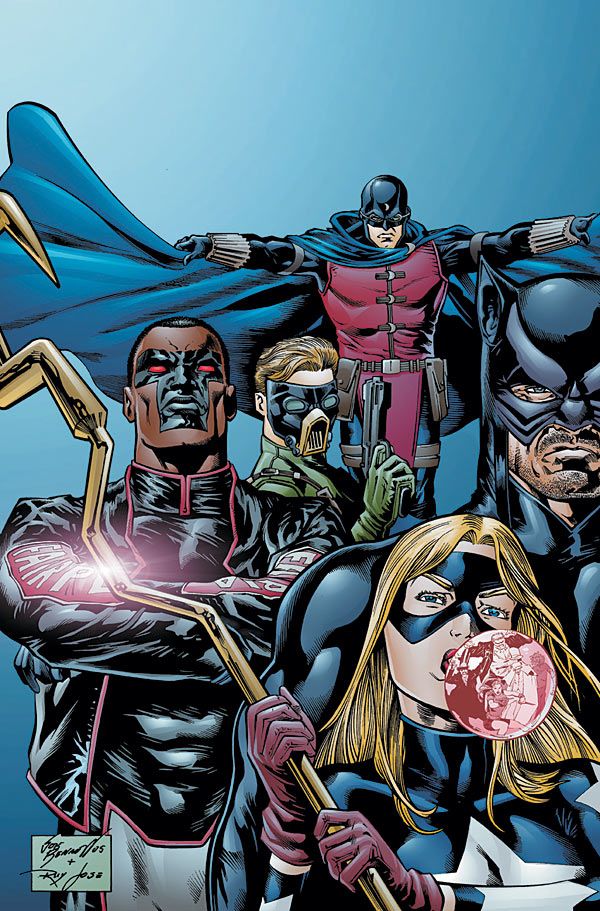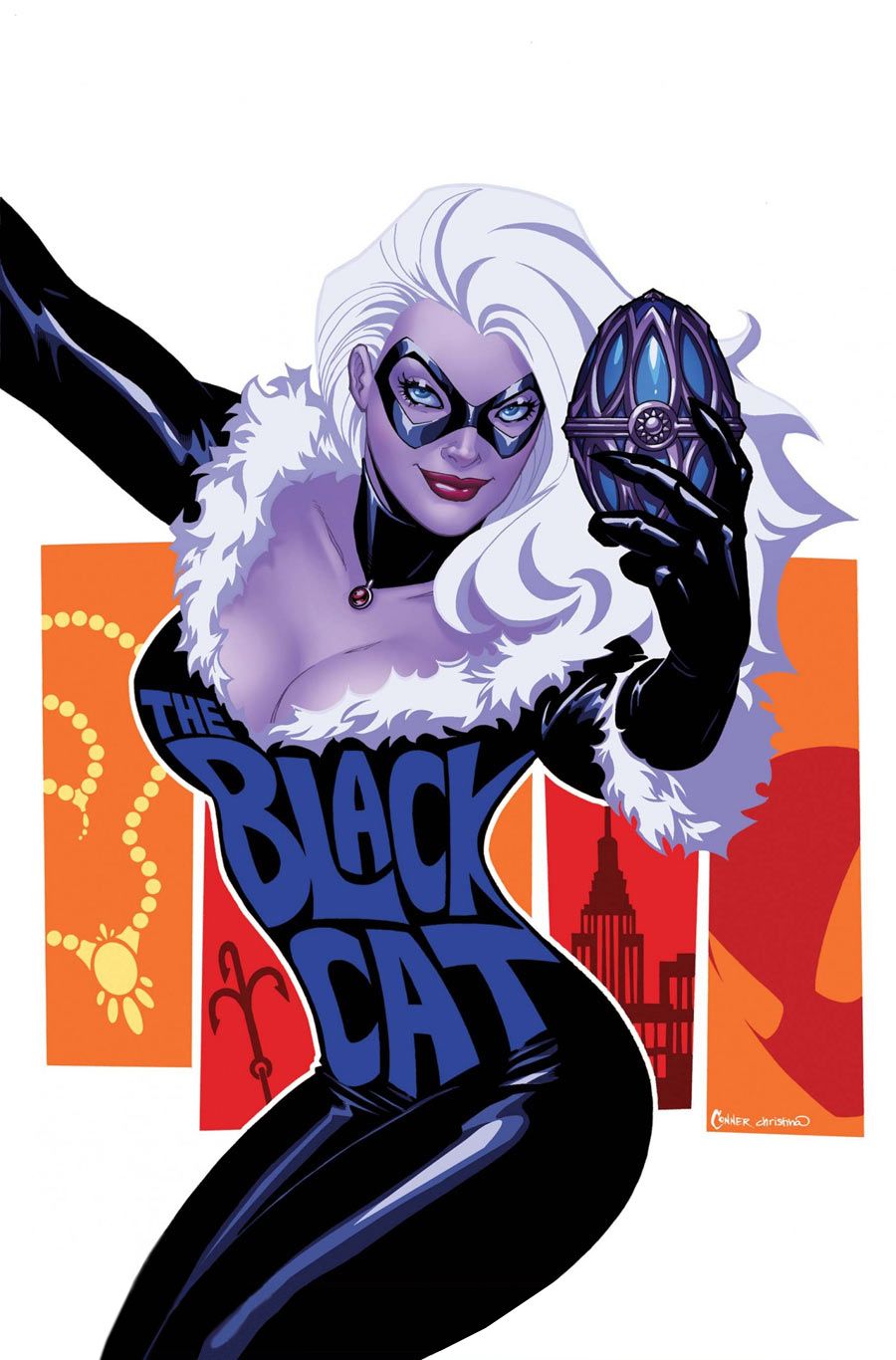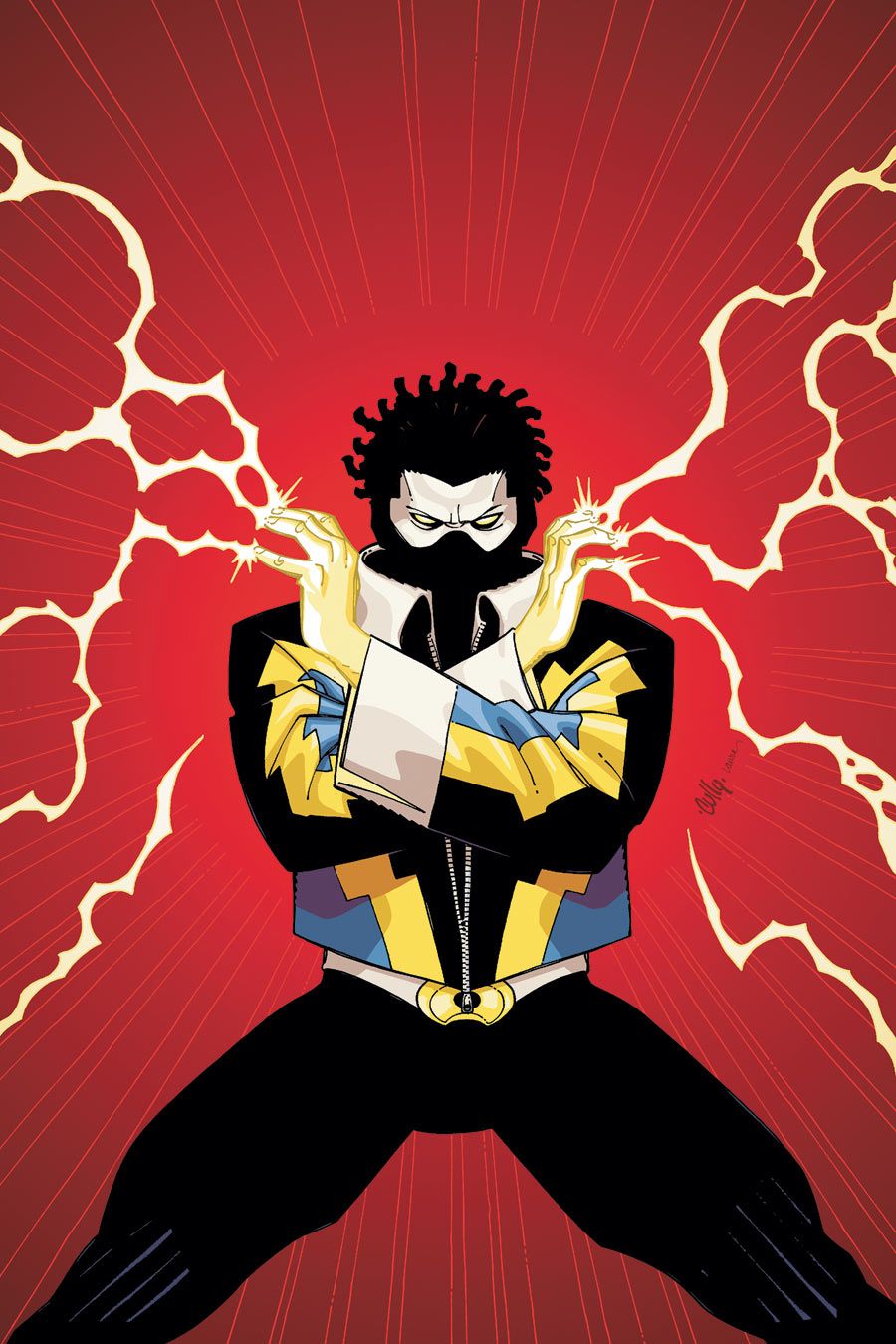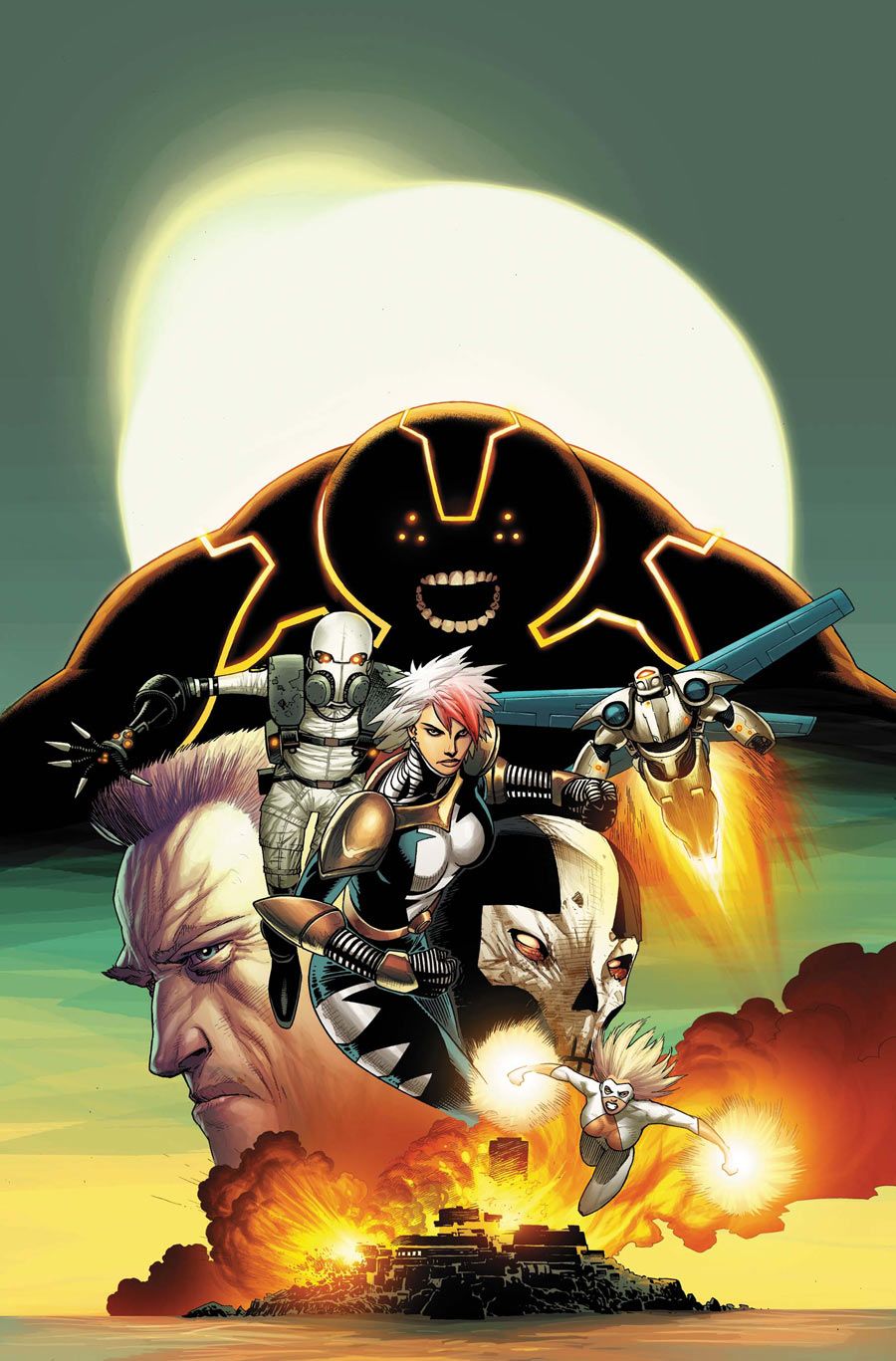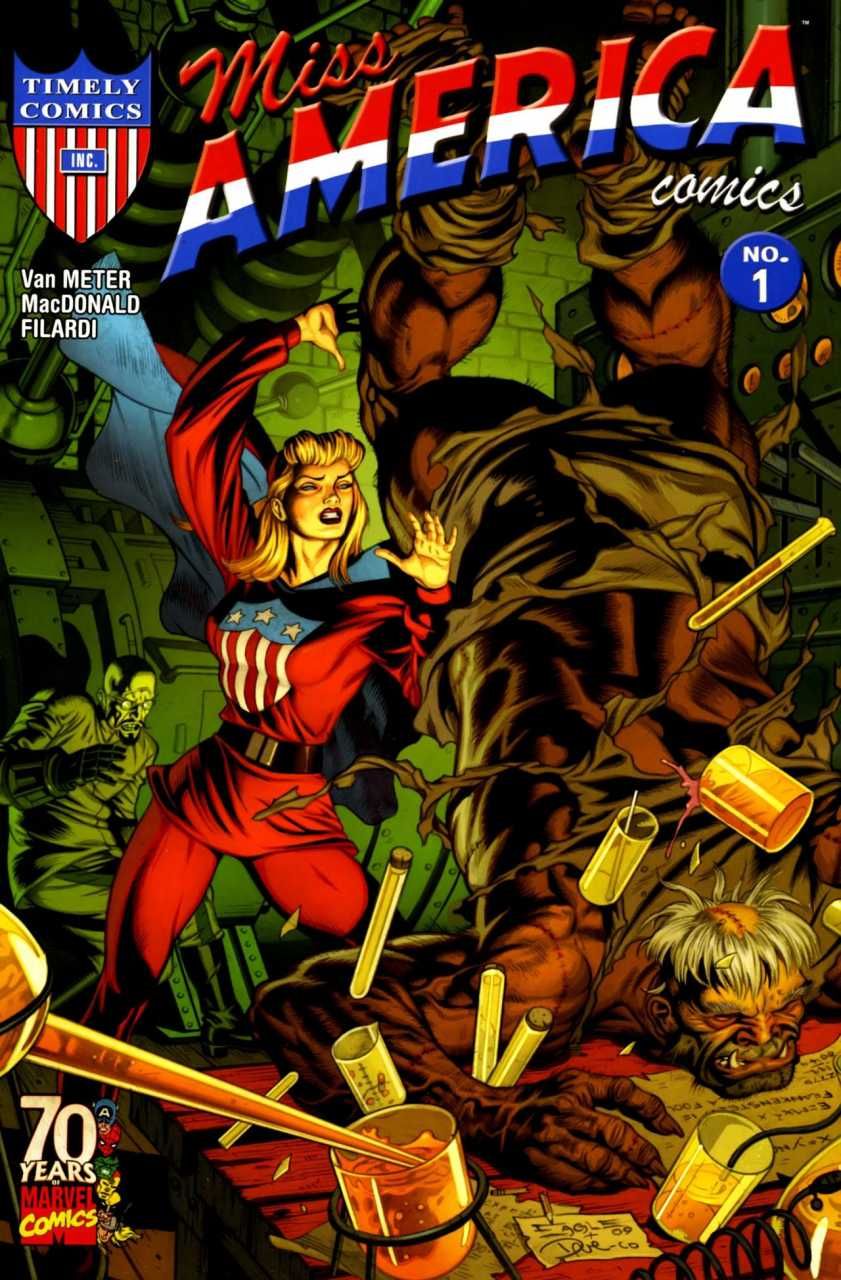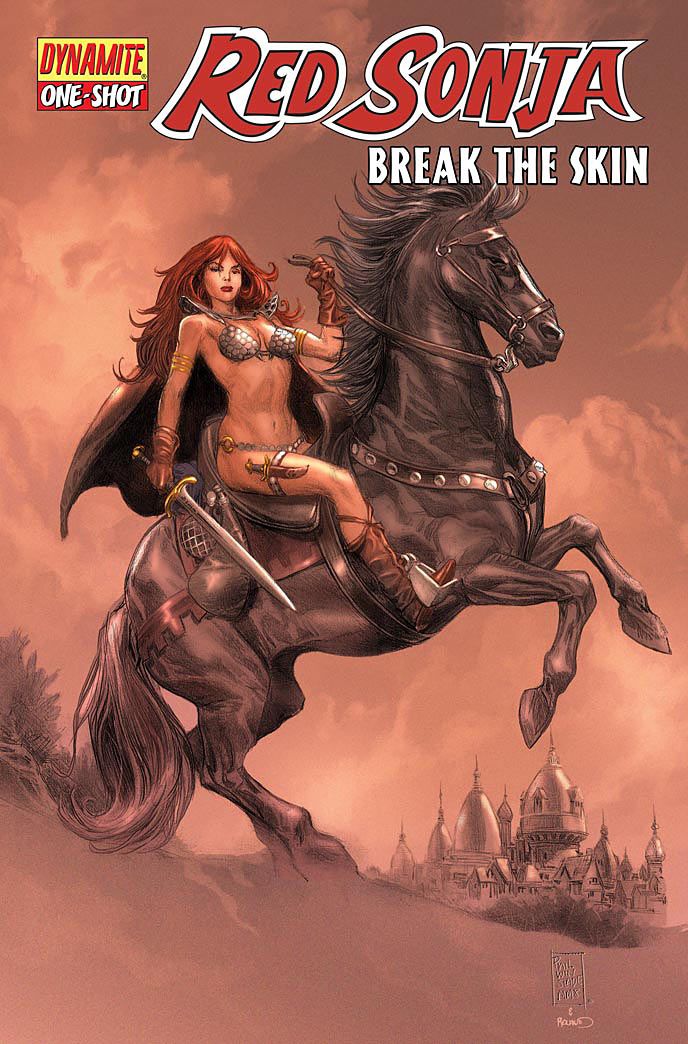Welcome to the CBR SUNDAY CONVERSATION, a weekly feature where we speak in-depth -- and at-length -- with some of the most interesting members of the comic book community. These discussions run the gamut in terms of topics, from current projects to classic stories, talking trends, tastes and wherever else the conversations lead.
Jen Van Meter is about to tackle one of her most ambitious and sprawling stories. After pursuing shorter, self contained stories throughout much of her career in an effort to balance writing with family life, she's now signed on for an ambitious relaunch of Valiant Entertainment's "Doctor Mirage" series. She considers it an opportunity to chronicle an epic, sweeping romance, as her protagonist descends to the underworld in search of her beloved husband. That motif of love and loss is a hallmark in Van Meter's writing, from the chaotic family drama of "Hopeless Savages" to an examination of Marvel's warm and unbreakable first family in an upcoming "Fantastic Four 100th Anniversary Special."
CBR News spoke to Van Meter about family, romance, and the siren song of heartache.
CBR News: With "Doctor Mirage" at Valiant, you're writing about a woman who goes into the underworld to reclaim her husband. How do you begin to approach that concept and all its emotional stakes?
Jen Van Meter: I think a lot of times the thing that's most challenging is that the world keeps moving forward, and in moments of great loss, we get stuck. When we're in mourning, it's like this isolating space of time not moving right. I wanted to start Doctor Mirage in a place like that and ask, what must be done to get unstuck? I'm also excited for the chance to write about a romance, like a great, sweeping romance. That's not something I've ever really gotten to do, not on that adventurous scale.
It strikes me that she's specifically labeled a 'parapsychologist.'
Yes.
We have a lot of 'occult detectives' skulking about, so this seems like an enticing angle. A different temperament and approach.
I like her as somebody who is sort of a pragmatist moving around in a landscape that, to anyone else, would look very fairy tale. That's part of her internal conflict, really. She's living in a world where 99.9% of the population gets to believe there's no such thing as ghosts and that magic is just pretend. That's how their world functions. She's living in this space where she knows that that's not true. It's also a very practical concern for her. I like to think of her as a magic-scientist.
RELATED: Van Meter Takes "The Death-Defying Doctor Mirage" on an Orpheus-Like Quest
Do you personally believe in ghosts?
I would love to. I've yet to encounter anything that's made me go, "Yeah, that's the real deal." I like the idea of worlds beyond worlds that we can't see. It is compelling to me. I think in my day to day life I am more interested in it as a way of telling ourselves stories about what's going on here and now. I'm not that interested in things like ghost hunter shows. That doesn't tend to grip me. But as a kid in the '70s I was fascinated by things like "In Search Of" and "The Time Life Encyclopedia of the Mysterious and Strange." I loved that stuff then in a way that I think heavily influences me now. I had a babysitter who kept little balsa wood pyramid frames over all of her houseplants, convinced it would make them grow better. There's a piece of me that's really attracted to that stuff, but I think it's at a slight remove, because I'm more interested in why it's so compelling to us.
That makes sense. What makes a talisman a talisman is more about the eye of the beholder. You mentioned there being no small thrill in the opportunity to tell a big, sweeping love story.
Yeah.
What are the touchstone love stories, for you?
Oh gosh.
This medium or any medium, let's say.
This medium, any medium. I vacillate. I love heartbreak, honestly. I'm a sucker for well-represented heartbreak. So I love things like "Casablanca," where there is an ultimate sacrificing of one's own wants to somebody else's needs. I'm always so compelled by that. There's a quiet, secret heroism in those moments when you do what's right for somebody else. Even though, selfishly, you would really love to do something else. I also really love humor in a romance. I think one of my favorite movies, ever, is "His Girl Friday." I think the thing that I love about it is both how romantic and how sexy it is when people respect each other's intelligence. And make each other laugh. That combination really works for me in romance. I love humor in a romance, but when I think about various 'romantic comedies' I've seen, it's not my favorite genre. So often, that humor ends up in the wrong direction.
Yes.
What I love is two people in a screwed-up world, laughing at it together, rather than an audience laughing at one of them. Take the buddy cop film, right? There's this tradition where what you're really watching is a relationship emerging in a foxhole. These two people are paired up against overwhelming odds, and the connection between them is bound up in part by being loyal to one another against whatever's coming towards them. I think there's a kind of romantic comedy where the mess of the world and the situation puts the lovers in a similar dynamic. We may not have thought we were meant for each other but here we find this bond. There's laughter and there's antagonism, but it's aimed outward. That really gets me. With a lot of romantic comedies, there's less pressure from outside, and the antagonism occurs between them. They become opposition for each other. That doesn't get me as much.
Looking at your catalog of work, you've written a great deal about family and family dynamics. Is that an accident, or something you consciously set out to explore?
It's something I really like to explore. It's not something I set out intending to explore.
It's not your raison d'être.
Right. Well, we talk. Greg Rucka -- my husband -- and I talk a lot around the house about the patterns we've observed in each other's work over the past 25 years. One of the things we've talked about is, for instance, people will look at his body of work and say, "Rucka really likes writing these badass women." But at home what we're often talking about is that the big question he wants to answer, that drives 99% of what he writes, is nature vs. nurture. He's fascinated by who we are and what we're made into. In a culture that really aggressively assaults women in terms of self image and self esteem -- and men as well -- on the basis of gender and sex, we look into his work and see these characters emerge out of him, always thinking about that question. One of my driving questions is about how we build communities, and how community works. I think the family probably winds up being my entry point a lot, in part, because it's this core community. Out of the households and out of tiny communities we form when we make families, we get a micro version of everything else. It's funny, because I didn't really notice how much I was doing it [Laughs] right away. As people started to engage with "Hopeless Savages," they'd bring it up to me, and I realized I did have that interest. I'm interested in, for lack of a better word, house rules. How we get along. I'm interested in families that make themselves out of collections of people that aren't necessarily related, or whose relationships aren't approved by the state, but who nonetheless make family. I laughed when you asked because years ago, when Steve Wacker was still an editor at DC, he called me up and asked if I'd be willing to do a three or four issue mini-series reuniting some villains for a JSA story. I kind of put it down and came back to it and told him, "You're really talking about a team book, and I don't really do team books." He said, "Have you ever read your stuff?"
RELATED: Talking "Hopeless Savages" with Bryan Lee O'Malley, Christine Norrey & More
[Laughs.]
It took me a while to realize that that's always been the appeal to me of superhero comics, as well. I like superhero narratives about the misfit people that make a family. It turns out to be a reason that I do like villain teams and hero teams. The minute anybody asks me to write an isolated character or solo character, one of the first things I do is try to find that character's family, the people around them. I didn't really recognize that pattern until other people pointed it out to me.
They do say that you don't really know a person until you see how they behave around their mother.
[Laughs.]
That's a great way to inform character, especially if there's a contrast between how they operate within a family and without.
I think so. I think, too, that -- and maybe I'm doing a nature vs. nurture thing too -- the things that have happened to us and the experiences we've had inform so much. So I'm always a little dissatisfied with a character where I don't get to see what happens when they go home. I want to know about home. I think that's because there's a sense that that's a more real space somehow? I don't know. It's tricky. Talking about Doctor Mirage, one of the compelling things for me is that I'm starting her in a place where home isn't home. She's trying to rebuild family. She's at a loss because that loss of family. That's been interesting for me because it runs counter to so many of my initial impulses, to start her in a place where she's kind of got nothing.
Let's look at the flip side. You have this 100th Anniversary Fantastic Four special coming up in July. "Hopeless Savages" and "Doctor Mirage" explore that discord in families, whether it's through separation or loss or implosion. The FF tend to work best as a happy family. They seem to be outliers in that way.
The thing that's appealing about them -- at their core -- is that they're this unit that cannot be busted up. You can send them into space and turn one of them into rocks and set another one on fire, and none of that is going to change the bond between these people.
There's a good unstable molecules joke in there somewhere.
[Laughs.] You know, you can give them kids and grandkids and time travel and any kind of disruption you want, and you're never going to change that one thing. For me, that is the pleasure of that family. There are other family stories about how messed up they are, and trying to heal. That's a great story too. That's not this story. I like family stories because, in one way or another, it is the common experience. Family can feel messed up on the inside and look really nice on the outside. The opposite is also true. But we've all got family experiences. The thing about the Fantastic Four that I love is that they are a chosen family as well. If someone asked you what the 'traditional' or 'conventional' American family looks like, you don't typically say, "Well, there's a man and a woman and her brother and their friend." That's not the place people typically go. I love that that's where that story just starts. And I think that the introduction of the kids has enriched those books. It has opened up so many wonderful avenues, having Valeria and Franklin there.
RELATED: Van Meter Plays Detective with Hawkeye in "Avengers: Solo"
And not just for Reed and Sue, either.
Right, not just for Reed and Sue, but for all four of them. Those kids have relationships with both their uncles. Cuz there's no way Ben's not, right? You get this dynamic where people have told great stories about Franklin's relationship with Johnny. They've done fantastic stories that are largely about Ben's relationship with Valeria. There's no sense of there being a limit to how much these people matter to the other five. That's really, really special. There's so much room for joy, that a lot of our other superhero books don't necessarily open up to. They could've come back from space and been like, "This sucks." They've told a lot of stories about how it sucks for Ben being turned into this pile of rocks, but it's all within the context of being a member of this family, and that part being a comfort. They come together to solve a problem. I love that. I don't typically respond to stories where it's about them hating each other. That never works for me.
That's the obnoxious parts that sully a romantic comedy. The forced antagonism for drama's sake.
Yeah! Exactly. If you want to tell a story about family with that kind of tension or aggression or betrayal, there are plenty of other communities in superhero comics for those stories, because the possibility for that is built in. If that makes sense?
Sounds like a job for the X-Men.
Yeah.
They're big on "Schisms."
Yeah. And there's room for a lot of soap opera drama and "how could yous" and face slapping. To my mind, I am not that interested in someone going, "Well, what happens when Sue cheats on Reed?" Because she wouldn't. Period. That's not where that relationship goes. To me. We, all of us -- fans and writers and artists alike -- all come to this with a certain head canon of what's important from each character. What's the important core of this team or this character for me? You're not going to find the stuff that violates that relatable. But that also means there is someone out there approaching it from a very different sense of that core. I don't want to negate that because every once in a while somebody's done a story that surprises you. "Oh my gosh, I've never thought that way about that character before. That is so compelling." Looking back though, that's usually someone expressing an insight that doesn't so much conflict with my own perception of a character, as it does expand it in a direction I'd never gone. Artists will do it a lot. Years and years ago I flipped open a book and somebody had drawn the transformation of the Hulk back to Banner. It didn't have a lot of copy if I remember correctly. It was that transition down. The look on his face, going from this Hulky rage to this expression of lonely disappointment, just broke my heart. I'd always thought of that dynamic as being very Jekyll and Hyde-y, and in this moment I realized that was a really limiting way of looking at it. It made me look at this weird sense of loss that came out of this transition. That's the artist depicting it in a way that I hadn't seen before. It didn't conflict with the way I thought of it before, but built on it. Enriched it.
Stay tuned to CBR News for more on Jen Van Meter's upcoming projects and follow her on Twitter at @hopelessjen.

